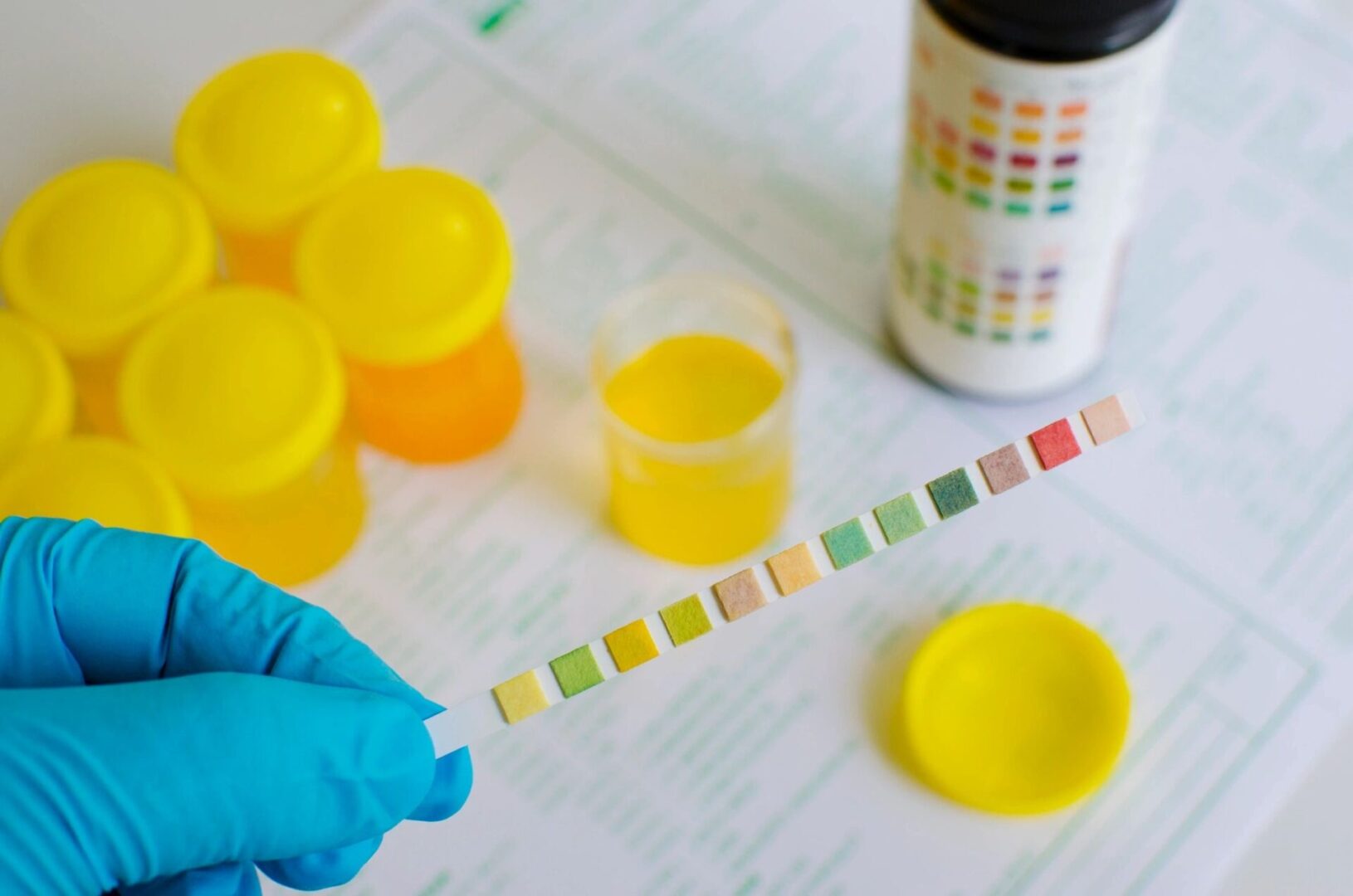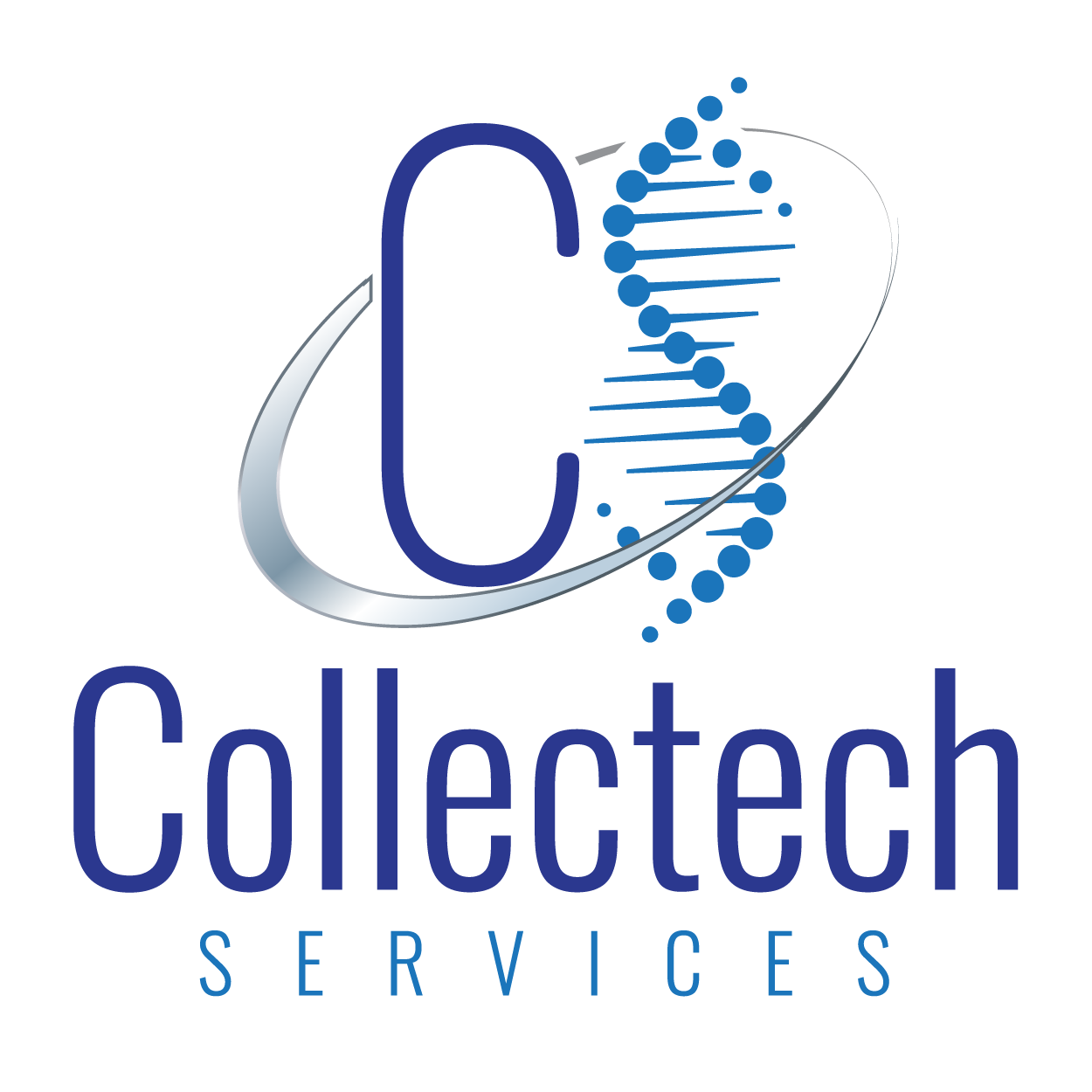
Technologically Advanced Evaluations of Parentage in Tennessee and Nationwide
Collectech Services is a DNA specimen collection site that offers mobile collection services. We offer a wide array of sample testing, including DNA testing, non-invasive prenatal paternity test, post-mortem viability testing, and more, utilizing one of the well-known labs in the United States.
Quick Facts About the Test
Accuracy-Related Clarifications
DNA Testing Paternity Testing
DNA Paternity Testing is the most reliable and powerful method for many reasons.
Testing is based on a highly accurate analysis of the genetic profiles of the mother, child, and alleged father. Everyone is born with a unique genetic blueprint known as Deoxyribonucleic Acid (DNA) within each nucleated cell in the body that determines a person's genetic pattern and individual characteristics. A child inherits half of this DNA pattern from the mother and half from the father. If the mother's and child's patterns are known, the father's can be deduced with virtual certainty.
Types of Paternity Test
The DNA is passed down from mother and father to child, and a paternity test is a conclusive way to determine biological relationships.
Paternity Test (Trio)
A standard paternity test, called a trio, involves the child, mother, and alleged father, and mother’s participation is always encouraged in a paternity test.
Paternity Test (Motherless)
Because DNA testing is so powerful, paternity can be determined even when the mother is unwilling or unavailable to be tested.
Paternity Test with Related Alleged Fathers
If two alleged fathers are closely related (full brothers, half brothers, or father/son), they might share the same DNA markers commonly used in a DNA paternity test. Both could test positive as the child’s biological father.
Other DNA Testing Services
Grandparentage Test
The test is performed to determine a child’s relationship to the alleged father’s family when the alleged father is unavailable or unwilling.
Siblingship Test
Full siblingship & half siblingship provides the likelihood of a genetic relationship between two possible siblings. Grandparentage is more definitive than a siblingship test when the mother is not involved.
Twin Zygosity Test
Definitively shows if twins are identical or fraternal. The physician usually is able to tell whether they are identical or fraternal by examining the placenta.
Maternity Test
The test is performed to confirm the biological relationship between a mother and child in cases of immigration, adoption, and hospital nurseries.
Post-Mortem Viability Test
This test is performed on a sample from a deceased individual to determine if the sample yields sufficient viable DNA to proceed with further testing. The fee for the viability test is separate from the paternity test fee.
Genetic Reconstruction
It is done to test the relationship between a child and biological relatives of the alleged father.
Y-STR Test
Used to determine whether two or more males are related through their fathers.
Avuncular Test
Performed to determine if two individuals are related to each other as aunt-nephew or as uncle-nephew.
DNA Banking & Profiling
The procedure helps individuals to prepare for the future by preserving their genetic information.

Drug & Alcohol Testing
At Collectech Services, we are committed to helping you make your company a substance-abuse-free facility. Apart from helping you with the testing, we also help you understand the test results and help you prevent substance abuse through customized employee training and materials. We respect your confidentiality and ensure that all of our services are competitively priced.
Service Locations

What We Offer
We conduct the following tests and meet all DOT federal regulations outlined in 49 CFR part 40.
The majority of the Fortune 500 companies get drug testing done with a purpose is to lessen the various harmful impacts of drug abuse in the workplace.
The U.S. Department of Labor estimates that drug use in the workplace costs employers $75 to $100 billion annually, and 65% of all accidents on-the-job are related to drug or alcohol and substance abusers utilizing 16 times as many health care benefits.
In 1987, SmithKline Beecham, found that 18.1 percent of all workers tested had positive results, and by 1997, the figure had dropped down to as low as 5.4 percent. Drug experts debate this means drug use has fallen, or drug abusers simply avoid employers that test. HR and safety professionals have found drug testing to be a valuable and cost-effective risk management tool.
Drug Testing Programs
The most common type of testing program is pre-employment. Courts have consistently upheld the legality of requiring a pre-employment drug test as a condition of employment. It is a best practice to obtain consent and to clearly indicate that drug testing is a requirement for employment.
For post-hiring testing, the employer should include training and education programs for supervisors and employees.
The company must publish guidelines for discipline in the event of a positive test, including random testing, individualized suspicion testing, post-accident testing, and testing that is legally required in certain industries, especially the Department of Transportation.
Although the Americans with Disabilities Act (ADA) and similar state laws provide protection for people who are in rehabilitation for drug addiction, the ADA does not protect people currently using illegal drugs and does not affect drug testing.
How Is the Testing Conducted
Drug testing is done by sending an applicant to the collection site to get a urine sample. The sample is then sent to a certified laboratory for analysis. Negative results are generally available within 24 hours. Instant test kits similar to home pregnancy tests are available and require the employer to manipulate a urine sample.
Although these tests are considered accurate for immediate screening, these are of no avail as laboratory confirmation, and retention of a sample for retesting be should be available. In addition, they are not any less expensive than laboratory tests.
The Ten & Five Panel Tests
Most employers utilize a standard five-panel test.
Some employers use a ten-panel test, which includes legal prescription drugs. Employers can also test for alcohol. Each drug and person is different, and most drugs will stay in the system for 2-4 days. For chronic users, results can be detected for up to 14 days, and even longer. Sedatives like Valium stay for up to 30 days. Through the hair testing method, drugs can be detected for 90 days.
Most employers will insist that a job applicant give the urine sample within a specific period so that a drug user does not wait until the drugs leave the system. Some drug experts consider a drug test to be an IQ test.
The Case of a Positive Test or Abnormal Test
Extensive procedures are done to re-confirm a positive test before reporting it. Most drug testing programs utilize an independent physician called a Medical Review Officer to review the results. The MRO will typically contact the subject to seek an explanation for positive results.
There can also be tests that are "negative' but show an abnormal result, such as a "low creatine level," which indicates a dilution of the sample. If the positive test is confirmed, the subject should have the right to pay for a retesting of the sample.
Urine samples for all positive tests are retained for that purpose.
If a current employee tests positive, then the employer must follow the policies and procedures they have put into place. Some employers will utilize an Employee Assistance Program (EAP) to arrange for professional assessment and treatment recommendations. All drug-testing results should be maintained on a confidential basis separate from an employees’ personnel file.
Cost/Benefit
Pre-employment drug testing programs can be set up with ease. Firms that operate from a single location can usually turn to a local medical clinic for tests. For firms with multiple locations, programs can be set-up through drug testing agencies.
Drug tests for small to medium employers generally cost in the $50-$70.00 range.
